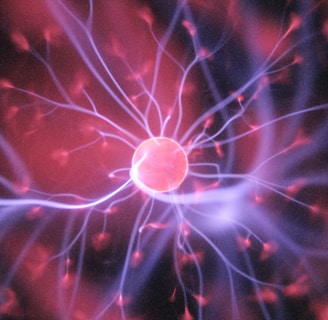The Science of Mindfulness: How Being Present Transforms Your Brain
Discover the transformative power of mindfulness, in this week’s theme on self-care and mindfulness. Learn how being present can rewire your brain, reduce stress, and enhance your well-being. Dive in to explore the science behind mindfulness and practical tips to integrate it into your daily life.
1/16/20252 min read


In today’s fast-paced world, our minds are often pulled in many directions. We juggle work, responsibilities, and constant distractions, rarely pausing to truly be present. But what if practicing mindfulness could do more than calm us down? What if it could rewire our brains for the better? This week, as we delve into the theme of self-care and mindfulness, we’re kicking off with the science of mindfulness—exploring how being present doesn’t just calm the mind but rewires the brain for lasting benefits.
What is Mindfulness?
Mindfulness is the practice of being fully present and aware of the moment without judgment. It’s about focusing on your current thoughts, feelings, and surroundings rather than worrying about the past or future. While mindfulness sounds simple, research shows it can profoundly affect how your brain functions.
The Neuroscience Behind Mindfulness
Mindfulness strengthens key areas of your brain:
Prefrontal Cortex (PFC): Responsible for decision-making and focus, the PFC becomes more efficient with mindfulness, helping you stay calm and make thoughtful choices.
Amygdala: Known as the “fear center,” this part of the brain regulates stress responses. Mindfulness reduces its activity, making you feel less reactive and more grounded.
Hippocampus: Critical for memory and learning, the hippocampus becomes more resilient through mindfulness, improving information retention.
Default Mode Network (DMN): This network is active when your mind wanders. Mindfulness reduces DMN activity, curbing overthinking and fostering mental clarity.
The Long-Term Benefits of Mindfulness
Consistent mindfulness practice creates lasting mental and emotional improvements:
Reduced Stress and Anxiety: Calming the amygdala and boosting the PFC breaks the cycle of chronic stress.
Improved Focus and Productivity: A stronger PFC enhances concentration and task efficiency.
Emotional Resilience: A balanced brain helps you respond to challenges with patience and clarity.
Greater Self-Awareness: Mindfulness deepens understanding of your thoughts and emotions.
Better Relationships: Being present improves communication and empathy, strengthening connections with others.
How to Practice Mindfulness in Everyday Life
Mindfulness doesn’t require hours of effort. Here are simple ways to start:
Focus on Your Breath: Spend a few minutes noticing the sensation of breathing.
Try Body Scans: Tune into areas of tension in your body and release them.
Be Present in Routine Tasks: Whether eating or walking, focus entirely on the activity.
Mindful Journaling: Write down your thoughts and feelings to boost self-awareness.
Use Guided Meditations: Apps like Headspace or Calm can help you build a mindfulness habit.
Why Mindfulness Matters Now
In a world filled with distractions, mindfulness offers a way to reclaim mental and emotional well-being. Research shows that being present doesn’t just calm the mind—it transforms the brain. Start small with a few moments of mindfulness daily and invest in a healthier, more resilient version of yourself.
Explore
Discover health insights and save your favorites.
ConTACT US
© 2024. All rights reserved.
